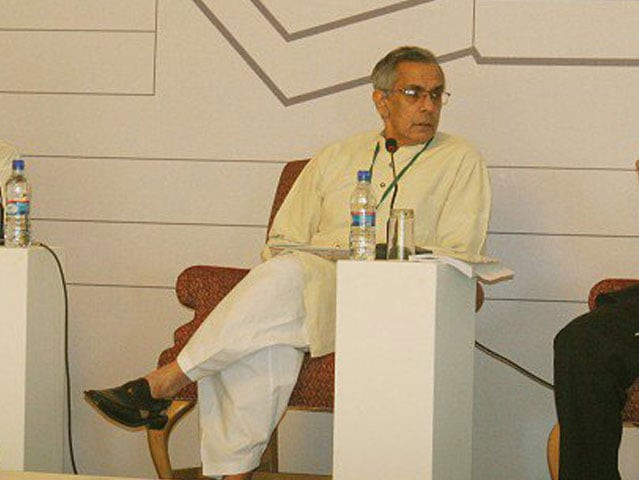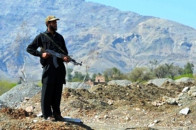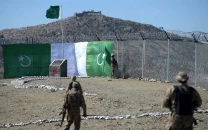Past, present and future: Time to rethink socialist politics, says Prof Akbar Zaidi
‘Slogans about good governance, corruption, justice reflect concerns of the middle class only’

Professor Akbar Zaidi. PHOTO: EXPRESS
He was delivering a lecture on the State of Pakistan’s Economy and its Impact on Politics at the Human Rights Commission of Pakistan (HRCP) head office.
Zaidi said progressive political forces in the country needed to take into account three key issues. “These are the military establishment’s interference in politics and the economy, the influence of extremist religious and sectarian outfits and foreign powers’ interventions in the country’s affairs,” he said.
He said socialist politics had been the inspiration for the popular political slogans of the 1960s and 1970s.
“This has changed today. The demand for roti, kapra and makaan has been replaced by slogans about corruption, justice and good governance,” he said. “These new slogans reflect concerns of the middle class only,” he said.
“I would urge progressives to refrain from using broad slogans like ‘aam aadmi’ in their mobilization campaigns,” he said. “Who exactly is an aam aadmi?” he asked.
Zaidi said the perception that a majority of Pakistan’s population lives in rural areas is flawed.
“According to some estimates, nearly 65 per cent of the population is now urban,” he said. He said these changes came as cities grew and distances between rural and urban areas shrunk.
He said according to a study, nearly 89 per cent of Punjab’s population lived less than two hours away from an urban area. “Much of rural income is generated from non-agricultural sources like the services sector and remittances from inside as well as outside the country,” he said.
“The idea that the rural population is not connected to the market economy is redundant,” he said. He said the left should look towards mobilizing both urban and rural populations.
Zaidi said the nature of the state and its contract with the citizens had changed. “The state no longer takes responsibility for welfare,” he said. “Many key services like education and health have been outsourced to the private sector.”
Zaidi said privatization had affected trade unions as well. “Majority of the workforce is now employed in the informal sector which forms 95 per cent of Pakistan’s economy. Even the formal sector is now looking to outsource the hiring of workers to private contractors,” he said.
“It is in the backdrop of these changes that the left must now rethink its political strategy and imagine its future as a transformative force in the country,” he said.
It was the first in a series of lectures held in the honour of veteran leftist Jamil Omar who had passed away last year in March.
Zaidi recalled that when he first met Omar in 1984, factionalism was rife in the Pakistani left. Activists did not mingle, preferring to distance themselves from other leftist groups,” Zaidi said. He said it was tragic that it had taken so long for progressives to break out of such fixations. “With these differences, leftists of the 1980s denied each other the opportunity to learn from one another.”
He said he had last met Jamil Omar in 2012 at the founding conference of the AWP – a party formed with the merger of various left-leaning groups in the country. The floor later opened to a question and answer session. Professor Azizuddin Ahmed presided over the session. HRCP General Secretary IA Rehman and Awami Workers Party (AWP) General Secretary Farooq Tariq also spoke on the occasion.



















COMMENTS
Comments are moderated and generally will be posted if they are on-topic and not abusive.
For more information, please see our Comments FAQ